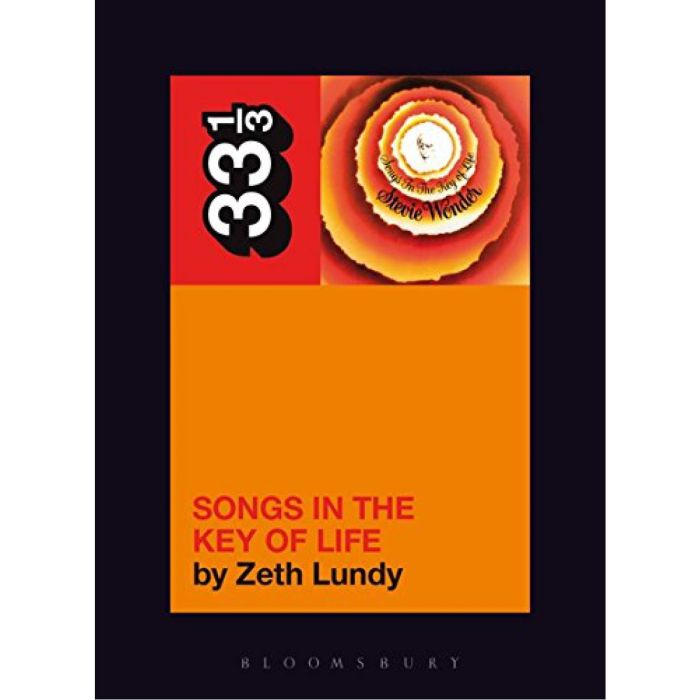My Cart
Your cart is empty
Looks like you haven't made your choice yet.
- Subtotal
33 1/3 - Stevie Wonder's Songs in the Key of Life

- Bloomsbury Academic
- by Zeth Lundy
More Information
| Publisher | Bloomsbury Academic |
|---|---|
| ISBN | 9780826419262 |
| Author(s) | Zeth Lundy |
| Publication date | March 2007 |
| Edition | Paperback |
| Dimensions | 166 x 122 mm |
| Pages | 160 |
| Language(s) | English ed. |
Description
Like all double albums, Songs in the Key of Life is imperfect but audacious. If its titular concern - life - doesn't exactly allow for rigid focus, it's still a fiercely inspired collection of songs and one of the definitive soul records of the 1970s. Stevie Wonder was unable to control the springs of his creativity during that decade. Upon turning 21 in 1971, he freed himself from the Motown contract he'd been saddled with as a child performer, renegotiated the terms, and unleashed hundreds of songs to tape. Over the next five years, Wonder would amass countless recordings and release his five greatest albums - as prolific a golden period as there has ever been in contemporary music. But Songs in the Key of Life is different from the four albums that preceded it; it's an overstuffed, overjoyed, maddeningly ambitious encapsulation of all the progress Stevie Wonder had made in that short space of time. Zeth Lundy's book, in keeping with the album's themes, is structured as a life cycle. It's divided into the following sections: Birth; Innocence/Adolescence; Experience/Adulthood; Death; Rebirth. Within this framework, Zeth Lundy covers Stevie Wonder's excessive work habits and recording methodology, his reliance on synthesizers, the album's place in the gospel-inspired progression of 1970s R'n'B, and many other subjects.

33 1/3 - Stevie Wonder's Songs in the Key of Life
